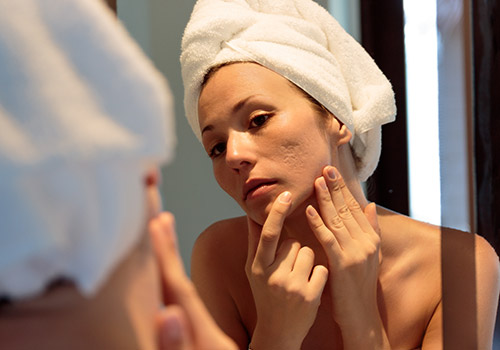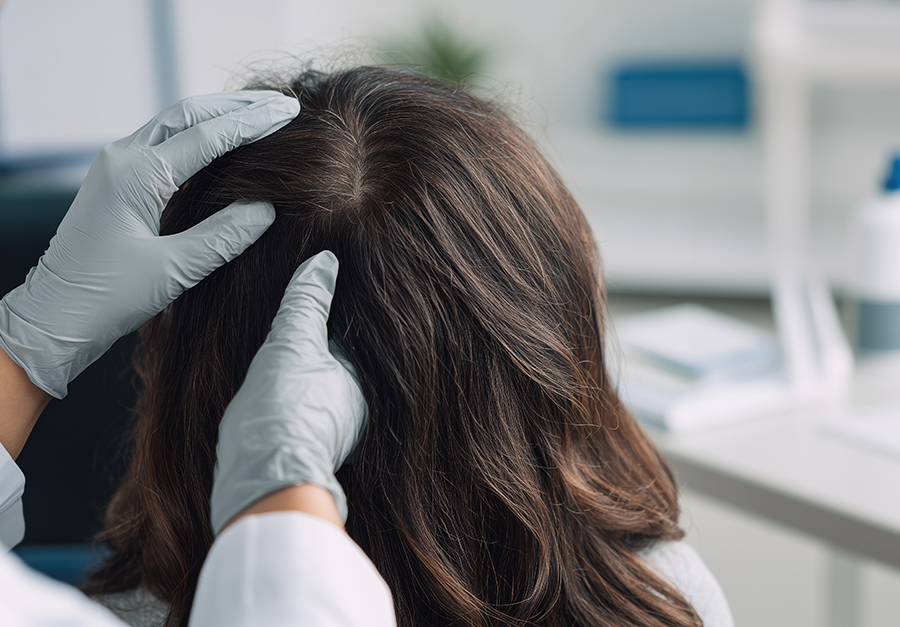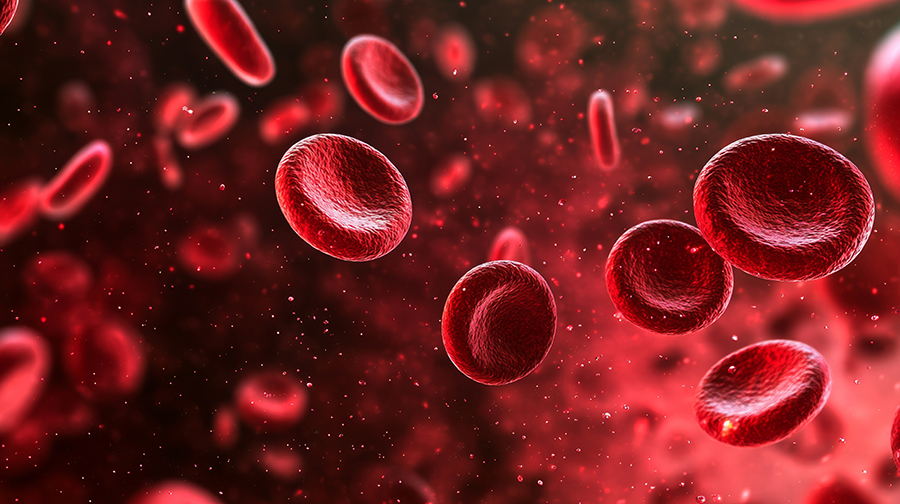Skin Problems: Why the Real Solution Starts in the Gut
When something’s wrong with your skin, you can’t hide it.
It’s the first thing you see in the mirror, and often the first thing others notice. Whether it’s persistent acne, eczema, rosacea, psoriasis, or mysterious rashes, skin issues can be frustrating, embarrassing, and even painful.
Maybe you’ve tried every cream, scrub, or prescription under the sun—only to have the problem come back. Maybe you’ve been told it’s “just genetic” or something you’ll have to manage for life.
But what if your skin isn’t the problem?
What if it’s actually a reflection of something deeper happening inside your body—something that, once addressed, could make your skin healthier from the inside out?
That’s the perspective Dr. Stillman brings to every skin case he sees. And time and again, the root of the problem isn’t the skin itself—it’s the gut.

Your Skin: The Body’s Outer Report Card
The skin is your largest organ. It protects you, helps regulate temperature, and acts as a barrier against toxins and pathogens. But it also tells a story—one about your overall health.
When something’s off inside—whether it’s inflammation, nutrient deficiencies, hormonal imbalance, or toxin overload—it often shows up on the skin first.
Dr. Stillman views skin symptoms as important “warning lights” on the body’s dashboard. Instead of turning off the light with a topical steroid or antibiotic cream, he asks:
- Why is your body sending this signal?
- What’s happening inside that your skin is trying to tell you?
The Gut–Skin Connection
Your gut and skin are connected in ways science is just beginning to fully understand. Here are a few of the most important links:
- Nutrient Absorption – Your skin depends on vitamins, minerals, amino acids, and healthy fats to renew itself. If your gut can’t properly digest and absorb these nutrients, your skin can’t rebuild effectively.
- Immune Regulation – Much of your immune system resides in your gut. If it’s overactive (due to food sensitivities, infections, or imbalances in gut bacteria), it can drive inflammatory skin conditions.
- Detoxification Pathways – When the liver and gut can’t efficiently eliminate waste, your body may push toxins out through the skin—leading to rashes, acne, or itching.
- Microbiome Communication – The bacteria in your gut influence the bacteria on your skin. An imbalanced gut microbiome can set the stage for imbalanced skin flora, contributing to irritation and infection.
Why Topical Solutions Often Fall Short
Conventional dermatology often focuses on treating the skin directly—antibiotic creams, retinoids, corticosteroids, or harsh cleansers. While these can temporarily improve the appearance of skin, they don’t address the internal factors driving the problem.
This is why many people see their symptoms return as soon as they stop treatment.
Dr. Stillman’s approach is different. He believes skin health is a mirror of internal health—and by restoring balance inside, you can see lasting improvements outside.
The Three Root Drivers of Skin Problems
Through years of patient care, Dr. Stillman has identified three recurring internal factors behind chronic skin issues:
- Metabolic Imbalances – Missing nutrients, unstable blood sugar, or inefficient energy production can all impair skin repair.
- Toxins – Chemical exposures, heavy metals, mold, and even stress hormones can trigger inflammatory skin reactions.
- Pathogens – Gut infections, overgrowth of harmful bacteria, or dormant viruses can keep the immune system on high alert, leading to skin flare-ups.
Amy’s Story: From Autoimmunity to Clearer Skin
Amy came to Dr. Stillman years after recovering from multiple sclerosis with a root-cause approach. While her neurological symptoms had resolved, she still dealt with unpredictable eczema flare-ups.
Testing revealed lingering gut inflammation, low zinc levels, and mild liver congestion. By rebalancing her microbiome, restoring her nutrient reserves, and supporting detoxification, her skin calmed—and for the first time in years, she enjoyed smooth, itch-free skin without daily steroid cream.
Inflammation: The Common Thread
No matter the skin condition, chronic inflammation is almost always part of the picture.
- In acne, inflammation causes redness and swelling around clogged pores.
- In eczema and psoriasis, inflammation drives itchiness, scaling, and discomfort.
- In rosacea, inflammation fuels visible redness and blood vessel changes.
Dr. Stillman’s first step is often lowering systemic inflammation by:
- Identifying and removing inflammatory foods.
- Addressing hidden gut infections.
- Restoring a healthy gut–immune system balance.
Meredith’s Story: Solving the Rosacea Puzzle
Meredith had battled rosacea for over a decade. Her dermatologist had prescribed multiple topical and oral antibiotics, which helped temporarily—but the redness and flushing always came back.
Dr. Stillman’s evaluation uncovered a gut overgrowth of certain bacteria linked to rosacea, as well as poor bile flow and fat digestion. By addressing these gut imbalances, supporting her liver, and optimizing her digestion, Meredith’s skin gradually cleared. Within months, her flare-ups were rare—and manageable without prescriptions.
Detoxification: Clearing the Path
Your skin is a secondary detox organ. When the liver and gut can’t keep up with waste clearance, the body may send toxins out through sweat and oil glands—leading to breakouts or irritation.
Supporting detox pathways is a key part of Dr. Stillman’s skin protocol. This may involve:
- Improving bowel regularity.
- Enhancing bile production and flow.
- Using targeted nutrients and gentle detox therapies.
The result: the skin no longer has to act as the body’s “back-up filter.”
Steve’s Story: From Stubborn Acne to Resilient Skin
Steve, a 35-year-old engineer, came to Dr. Stillman with persistent cystic acne he’d battled since his teens. Over-the-counter products hadn’t helped, and prescription medications only gave short-term results.
Gut testing revealed poor protein digestion, low stomach acid, and an overgrowth of inflammatory bacteria. With digestive support, mineral repletion, and microbiome balancing, Steve’s breakouts decreased dramatically—and his confidence returned.
Hormones and the Skin
Hormonal imbalances—especially in androgens, estrogen, and cortisol—can play a big role in skin health. But as Dr. Stillman’s work shows, these imbalances often start with gut issues.
Poor digestion can impair the body’s ability to eliminate excess hormones, while inflammation can alter hormone production and sensitivity. Restoring gut function often helps hormone-driven skin problems like hormonal acne, perioral dermatitis, or cyclical eczema improve naturally.
Stress and the Skin
Ever noticed your skin acts up during stressful times? Chronic stress raises cortisol, which can:
- Increase oil production in the skin.
- Suppress immune defenses, making skin more reactive.
- Slow repair and regeneration.
Stress also impacts gut health, which in turn affects the skin. By helping patients reduce stress through circadian rhythm alignment, movement, and breathwork, Dr. Stillman supports skin health from yet another angle.
Emily’s Story: Beating Eczema Before Her Wedding
Emily had struggled with eczema since childhood. As her wedding approached, she wanted to avoid flare-ups that might affect her big day.
By following Dr. Stillman’s “therapeutic tree” approach—starting with nutrition, digestion, and stress balance—Emily saw her skin calm dramatically. On her wedding day, her arms and hands were smooth and comfortable for the first time in years.
The “Therapeutic Tree” for Skin Healing
Dr. Stillman’s method follows a clear order of operations:
- Foundation – Nutrition, digestion, sleep, light exposure, and stress balance.
- Restoration – Mineral repletion, detox support, microbiome balancing.
- Advanced Care – Targeted skin therapies, if still needed.
This prevents wasted effort on advanced treatments before the body’s natural repair systems are ready.
Could Your Gut Be the Key to Your Skin’s Health?
If you’ve been treating skin problems from the outside in without lasting results, it may be time to flip the script.
By restoring gut health, calming inflammation, and supporting detoxification, Dr. Stillman helps patients see real, lasting changes in their skin—and in their overall health.
Dr. Stillman’s Skin Health Approach is designed to:
- Identify the root causes driving skin inflammation.
- Restore the gut–skin connection.
- Support the body’s natural repair and regeneration processes.
Because the best skin solutions don’t just cover the problem—they fix it at its source.
Skin Problems Insights
Recent blog posts and podcasts from Dr Stillman on this topic.

Light Therapy for Menopause
Why women love light therapy during and after menopause Light therapy has been a game-changer for my patients in menopause. Light therapy, or phototherapy, consists of illuminating the body with…

Four Things People Get Wrong About Hair Testing
I run more hair tissue mineral analyses than any other doctor I know. We get incredible results using this test. But I consistently hear the same four objections from patients…

Stories of Hope, Stories of Healing: Surviving Aplastic Anemia and Creating Skin Sips
Click here to listen to the podcast. In this episode of Stories of Hope, Stories of Healing, Dr. Leland Stillman sits down with Mary Rankin—entrepreneur, survivor, and creator of the antioxidant-rich…
